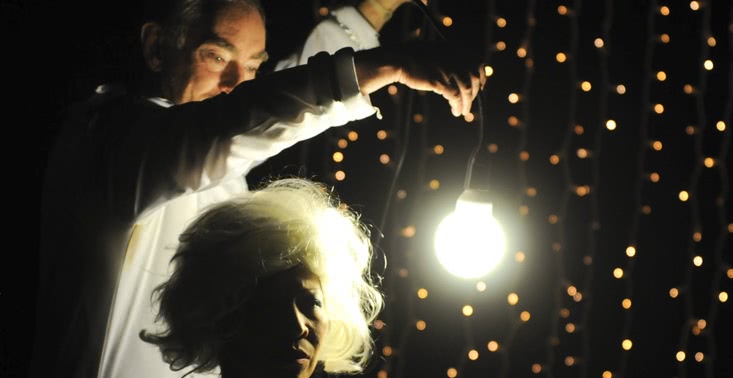The unlikely parallels between cosmology and love are the subject of Theatre Kantanka’s new experimental production,Clubsingularity. “Kantanka is interested in delving into things that are around us but perhaps worlds that are little microcosms unto themselves,” says theatremaker Katia Molino.
Discussing her multi-faceted role in the production, she reveals that this “unusual cabaret” is a mix of humour, sadness, dancing, singing and, of course, science.
“When Theatre Kantanka makes a show, what it does is it chooses a topic and then we kind of immerse ourselves in research, and so Clubsingularity is the product of research into the origins of the universe, astronomy and lonely hearts clubs,” explains Molino.
“I think that cosmology and astronomy have become sciences that have come to the forefront of the [minds of the] ordinary, non-scientific person – stars and planets and our own small existence in an ever-expanding universe – and I think that melds really easily in the human mind with ideas of romance and ideas of searching for someone else, whether it be other life in the galaxy or a partner to share your life with. And so, although one subject is enormous and the other is small and intimate, they complement each other really well”.
Theatre Kantanka has an interesting and fundamentally collaborative way of developing productions, with Clubsingularity a cooperative undertaking. “You really have ownership of the piece,” Molino says. “Each of us has a forte – there is a group of performers and there is a composer and lighting and production people, but everyone is involved from the beginning in this research part of the work. So when we come together, even though we have a director, Carlos Gomes, we all make the work. We write it and we make scenes and we suggest costumes – in fact, we make the costumes – and Carlos has been busy making meteorites.”
“Kantanka shows are very visual shows,” Molino adds. “Carlos has a really great theatrical eye and can make really splendid visuals from very small amounts of elements.”
Given Clubsingularity’s subject matter is so adventurous, Molino is particularly enthusiastic when sharing what especially interesting facts she discovered during research. “When we started researching, a little bit after that, Professor Brian Schmidt won the Nobel Prize for science for proving that not only is the universe expanding, but the rate of expansion is accelerating,” says Molino. “That’s a big deal when you think about it, isn’t it? It kind of means that we’re getting lonelier and lonelier, because all the galaxies are moving away from each other at an increasing rate.
“The other amazing thing related to the same point is that it’s not as if the expansion of the universe is from one central point; what’s actually happening is that the space between the galaxies – all of them – is expanding evenly. It’s not the planets moving away from each other, but the space between them getting larger.”
In Clubsingularity, science provides a framework for thinking about life, loneliness and the sometimes seemingly impossible pursuit of love. “It’s funny and sad at the same time,” muses Molino. “Maybe it’s also that’s what humans are good at – relating everything to themselves, even if it’s about cold objects in space.”
PSpace Social are presenting Clubsingularity from Wednesday May 21 to Saturday May 24 at the National Art School, tickets through Eventbrite.

































